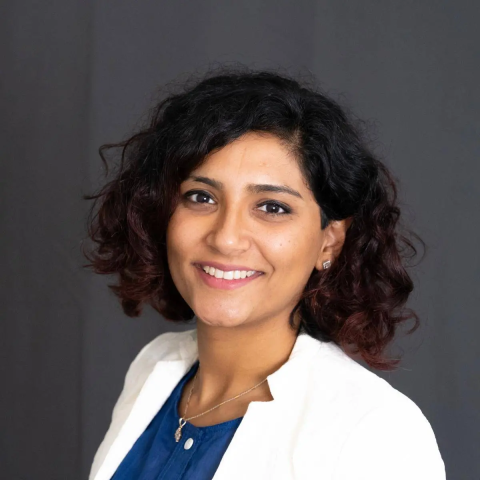Vincent Mooney




Daniel Molzahn joined the faculty of the School of Electrical and Computer Engineering at Georgia Tech in Spring 2019. Prior to this position, Dr. Molzahn was a computational engineer at Argonne National Laboratory in the Center for Energy, Environmental, and Economic Systems Analysis (CEEESA), where he currently holds an affiliate position. He was a Dow Postdoctoral Fellow in Sustainability in the Electrical Engineering and Computer Science Department at the University of Michigan. He received the B.S., M.S., and Ph.D. degrees in Electrical Engineering and the Master’s of Public Affairs degree from the University of Wisconsin-Madison, where he was a National Science Foundation Graduate Research Fellow. In his spare time, Dr. Molzahn enjoys hiking, waterskiing, and climbing. Also, as a shareholder of the world's greatest sporting franchise, he keeps an eye on his investment by watching and attending football games of the 13-time-champion Green Bay Packers football team.
Building Technologies; Nuclear

A.P. "Sakis" Meliopoulos, Ph.D., is the Georgia Power Distinguished Professor in the School of Electrical & Computer Engineering at Georgia Tech and serves as Associate Director of Cyber-Physical Systems for the Institute for Information Security & Privacy. Meliopoulos helped the development of the power program at Georgia Tech by contributing to the modernization of existing courses, introducing new courses, initiating research activities, and developing continuing education programs and the Power System Certificate program. Meliopoulos is the co-inventor, with George Cokkinides, of the Smart Ground Multimeter and the Macrodyne PMU-based Harmonic Measurement System for transmission networks. In his most recent research activities, he has introduced new approaches for modeling large scale power grids based on quadratization and the utilization of this approach to a variety of protection and control of the future power system integrated with distributed generation, renewable energy sources, and power electronic subsystems and interfaces. He has introduced the concept of the SuperCalibrator, a new approach that enables fully distributed state estimation and root cause disturbance analysis. This technology is expected to make a huge impact on the way we presently monitor and control the power grid. Presently, Meliopoulos leads four field demonstration projects on four different utilities: USVI-WAPA, NYPA, Southern Company, and PG&E. He has applied the quadratized approach for high fidelity analysis, stability and control of integrated systems consisting of the power grid, and power electronics interfaced distributed generation and renewables (the μGRID model). He is leading an EPRI-sponsored effort to develop "settingless" protection methods utilizing recent technologies of merging units and GPS-synchronized measurements. He has developed a state-of-the-art synchrophasor laboratory with multiple capabilities: (a) characterization of PMUs, (b) testing of PDCs, (c) autonomous monitoring and control using GPS-synchronized measurements, and (d) testing of protective functions that require GPS synchronization. Meliopoulos holds three patents, published three books, and published over 270 technical papers. For his research achievements, he was elected Fellow of the IEEE in 1993. In addition, he has received the IEEE-IAS Society Field Award in 2005 (IEEE-IAS Richard Kaufman Award), and the 2010 George Montefiore Institute Award (Belgium). He was named the Georgia Power Distinguished Professor in 2006. He serves as the site director for the NSF I/URC PSERC, he is the academic administrator of the Power System Certificate program, and the chairman of the Georgia Tech Protective Relaying Conference and the Fault and Disturbance Analysis Conference. He attended the National Technical University of Athens, Greece, where he earned the Diploma in Electrical and Mechanical Engineering in 1972. He then attended Georgia Tech where he earned his MSEE (1974) and Ph.D. (1976) degrees. He joined Georgia Tech's faculty of Electrical Engineering in 1976.
Large-Scale or Distributed Systems

Steven W. McLaughlin is the provost and executive vice president for Academic Affairs at the Georgia Institute of Technology. He is a professor in the School of Electrical and Computer Engineering.
McLaughlin first joined Georgia Tech as a member of the faculty in 1996. From 2017-2020, he served as the dean and Southern Company Chair of Georgia Tech’s College of Engineering, the largest engineering college in the country. Prior roles include the Steve Chaddick School Chair in the School of Electrical and Computer Engineering from 2012-2017, and the vice provost for International Initiatives and Steven A. Denning Chair in Global Engagement from 2007-2012.
In 2014 he co-founded CREATE-X, a campus-wide effort to instill entrepreneurial confidence in students and help them launch companies. The program has successfully launched 225 student-led companies and engaged more than 4,000 students in the principles and practice of evidence-based entrepreneurship.
In 2011 he was awarded the honor Chevalier dans l`Ordre Nationale de Merite, (Knight of the French National Order of Merit), the second highest civilian award given by Republic of France. He was the first Georgia Tech recipient of the Presidential Early Career Award for Scientists and Engineers (PECASE) where he was cited by President Clinton "for leadership in the development of high-capacity, nonbinary optical recording formats." He is a past president of the IEEE Information Theory Society and is a Fellow of the IEEE.
His research interests are in the general area of communications and information theory. His research group has published in the areas of forward error correction and equalization in wireless communications, magnetic/optical data storage, data security, and privacy. He has advised more than 50 students and postdocs. His group has published more than 250 papers in journals and conferences and holds 36 U.S. patents.
He received the B.S.E.E. degree from Northwestern University, the M.S.E. degree from Princeton University, and the Ph.D. degree from the University of Michigan.

Divya is an Assistant Professor in School of ECE and Computer Science. Divya received her Ph.D. from Georgia Institute of Technology and Master’s from UT Austin. She obtained her Bachelor’s from IIT Ropar where she was conferred the Presidents of India Gold Medal, the highest academic honor in IITs.
Prior to joining Georgia Tech, Divya was a Senior Researcher at Microsoft Azure since September 2019. Her research has been published in top-tier venues such as ISCA, HPCA, MICRO, ASPLOS, NeurIPS, and VLDB. Her dissertation has been recognized with the NCWIT Collegiate Award 2017 and distinguished paper award at High Performance Computer Architecture (HPCA), 2016.
Currently, she leads the Systems Infrastructure and Architecture Research Lab at Georgia Tech. Her research team is devising next-generation sustainable compute platforms targeting end-to-end data pipeline for large scale AI and machine learning. The work draws insights from a broad set of disciplines such as, computer architecture, systems, and databases.
Computer ArchitectureSystems for Machine LearningLarge Scale Infrastructure for AI and Data Storage

Sung Kyu Lim was born and grew up in Seoul, Korea, and moved to Los Angeles with his family at the age of 19. He received B.S. (1994), M.S. (1997), and Ph.D. (2000) degrees all from the Computer Science Department of University of California at Los Angeles (UCLA). During 2000-2001, he was a post-doctoral scholar at UCLA, and a senior engineer at Aplus Design Technologies, Inc. In August 2001, he joined the School of Electrical and Computer Engineering at Georgia Institute of Technology an assistant professor. He is currently the director of the GTCAD (Georgia Tech Computer Aided Design) Laboratory at the School. He recently released a CD with his rock band in Los Angeles and spends his leisure time writing/recording music
Physical design automation for VLSI circuits3D circuit/packaging layout automationQuantum circuit layout automationMicro-architecture design space explorationLayout automation for reconfigurable circuitsGraph theory and combinatorial optimization


Pan Li joined Georgia Tech in 2023 Spring. Before that, Pan Li worked at the Purdue Computer Science Department as an assistant professor from the 2020 fall to the 2023 Spring. Before joining Purdue, Pan worked as a postdoc at Stanford Computer Science Department from 2019 to 2020. Pan did his Ph.D. in Electrical and Computer Engineering at the University of Illinois Urbana-Champaign. Pan Li has got the NSF CAREER award, the Best Paper award from the Learning on Graph Conference, Sony Faculty Innovation Award, JPMorgan Faculty Award.
Develop and analyze more expressive, generalizable, robust machine learning algorithms with graph and geometric data, using e.g., Graph neural networks, geometric deep learning, and equivariant models. Build scalable analysis and learning tools for large-scale graph data, such as graph and hypergraph clustering algorithms, and large-scale graph machine learning. Artificial Intelligence for Science: Interpretable and trustworthy graph machine learning for physics.
